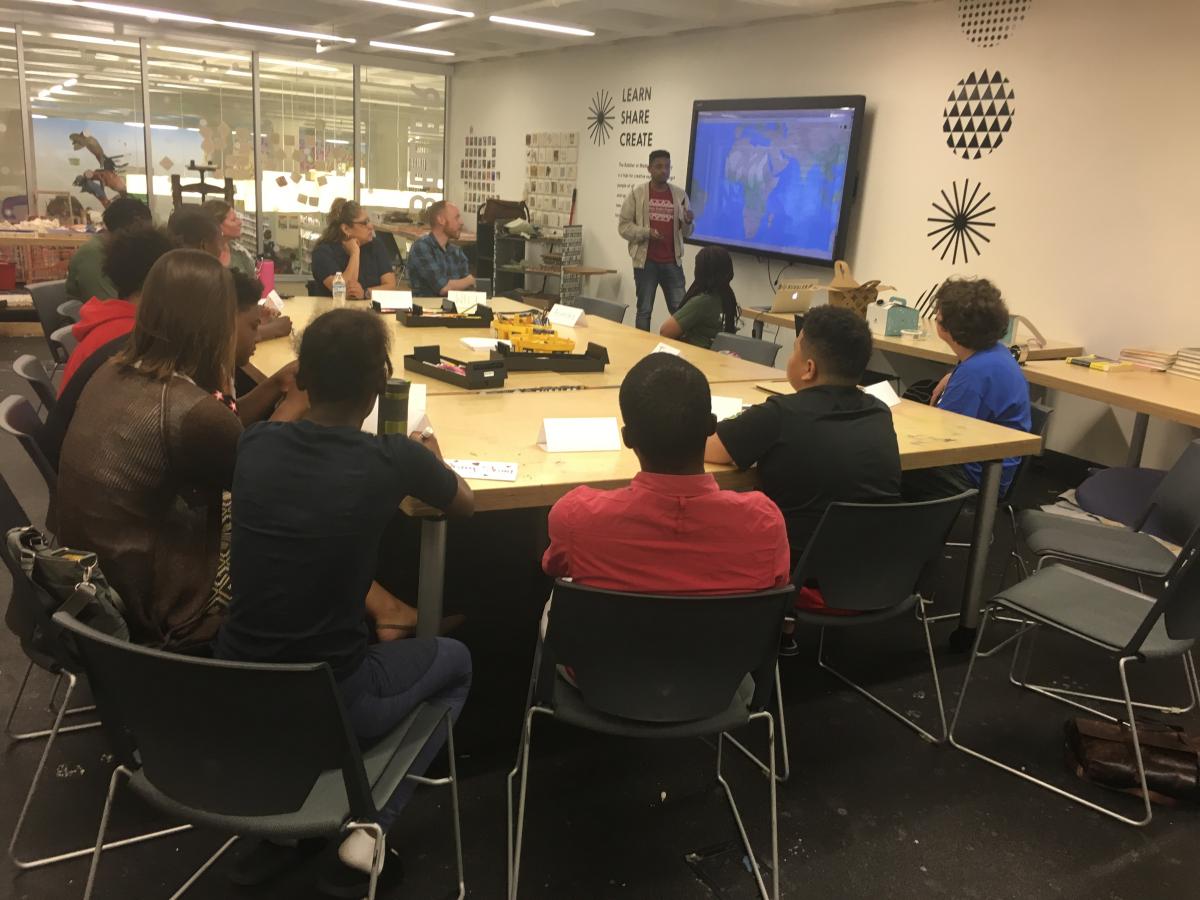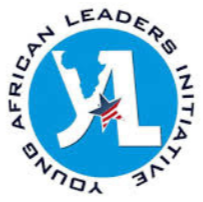
5 YALI fellows
from 5 African nations
This summer, the Bubbler’s Making Justice program was lucky to participate as a host site for the Young African Leaders’ Initiative (YALI). Five young
adults from five African nations, partnered with us to provide six weeks of programming for court-involved youth in Madison. We saw YALI as a chance to develop cultural competencies and dramatically expand the worldview of local teens. What we didn’t realize was the impact the program would also have on the YALI fellows, who were visiting the US for the first time.
It quickly became apparent to us that outside of their individual expertise, the strength of our YALI fellows was around relationship-building and sharing openly about their culture and experiences. The Bubbler staff stepped in to provide the activities (from stop- motion animation to screen printing to cooking soup) to serve as platforms for shared experiences and genuine conversation between teenagers, youth serving professionals, and the YALI fellows.
Having something to do together helped ease language barriers - there was a lot of pointing, miming, and laughing as the teens and fellows worked together to make things and learn about each other. A lot of the technology - especially the stop motion animation videos - was new to the YALI fellows. But the teens, through previous school or library programs, were very competent. This allowed the balance to shift and for the teens to recognize they had skills and expertise to share, boosting their confidence and making them more willing to engage and ask questions of their older YALI peers.
However, the first session of the 6 weeks at the Juvenile Detention Center (JDC) and the Shelter Home actually consisted only of conversation. The fellows shared about their home countries through pictures, currency and stories, and answered all of the very candid questions coming from our teens. We were pleasantly surprised when the teens shared that this conversation session was loved best of all.

How do we measure success?

Engagement
Some participating African American teens especially had an almost mythological view about Africa, which the YALI fellows often attributed to lack of exposure. For instance, Africa is not just one country with one language! It is made up of lots of independent nations, each with unique customs and ideas around “independence”. To every question from teens, our 5 different fellows had 5 distinctive answers from 5 dramatically different cultures.
Suddenly geography became REAL for our local teens.
It was eye opening to these teens who expressed that they would love to visit Africa, only to hear the YALI fellows explain what a dream it was to finally be able to see the United States, and how jealous they were of getting to grow up here.
For our YALI fellows, their myths about the US were also scrutinized. They came to America with the ideal that it is a free and democratic nation, and yet saw harsh racial disparities in Madison. While nearly every teen they encountered in the juvenile detection and shelter was a person of color, the concerts on the square and campus tours were auspiciously white. Our YALI fellows were full of questions about what it meant to be Black in the US, and our teens were able to share their distinctive culture and experiences as well.

Developing Understanding
Our YALI fellows quickly learned that not every American shares the same culture in the ways they assumed – from language, to fashion, to lived experiences, traditions, and celebrations. Our favorite manifestation of a cultural understanding was when we realized one of our YALI fellows was introducing himself to the teens as D’Patrick.
D’Patrick’s name in his native dialect was almost impossible for us to pronounce - it included clicks and sounds we don’t use in English, and he decided to choose an “Americam” name during his fellowship. He chose Patrick, which in America is most commonly a white name, coming from Irish origins. But how could he have known this? Patrick is African and Black and wanted a name more representative of the American Black culture he was experiencing. He noticed that lots of the Black teens he was working with had a name with a "D'" sound at the beginning and subtly changed his introduction to reflect the culture and connect with his American peers.
It pressed home with us the depth of cultural understanding being developed – there is a lot of power in names and it as awesome to see them understand and embrace the nuances of the youth they were engaging.

